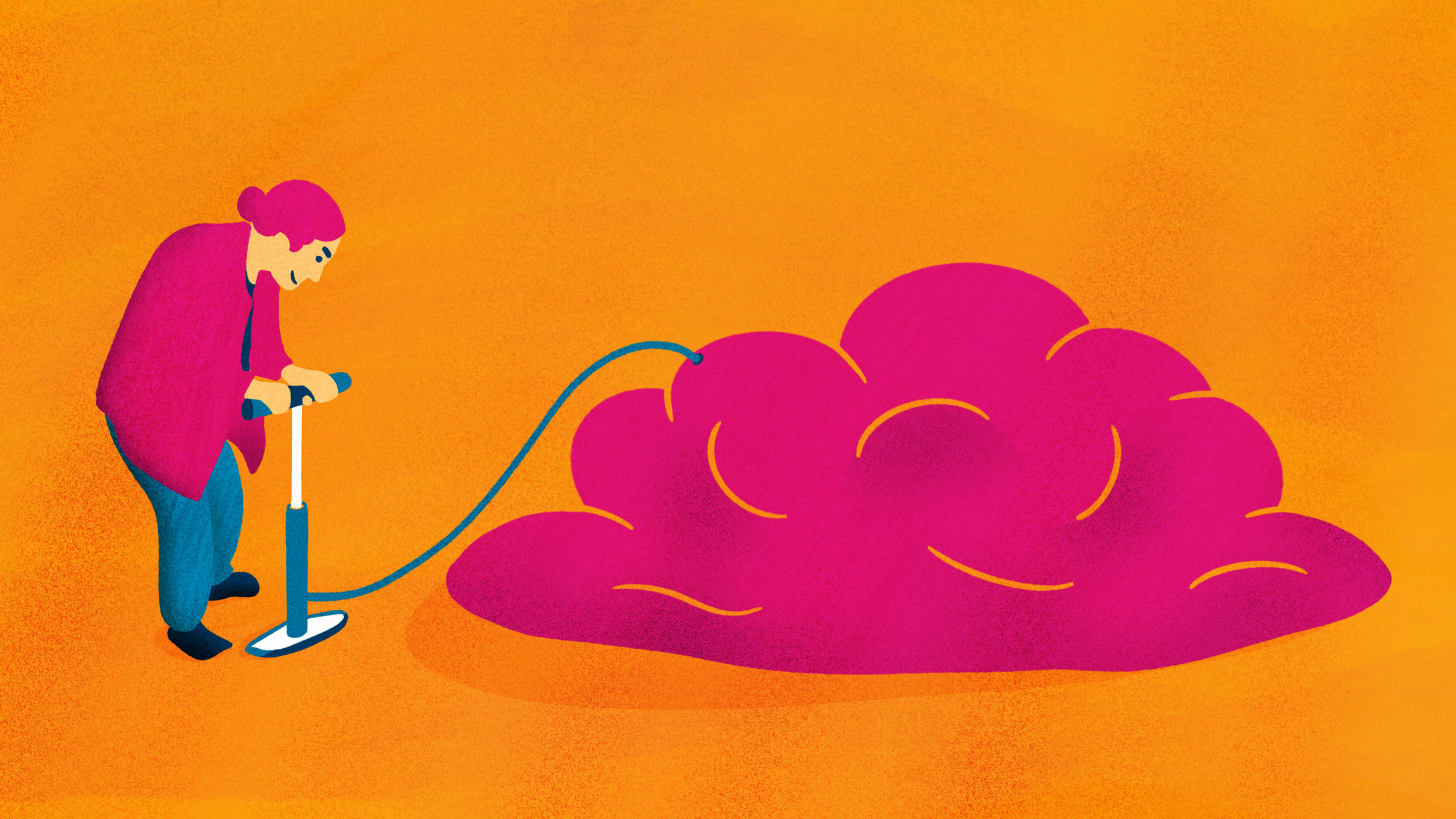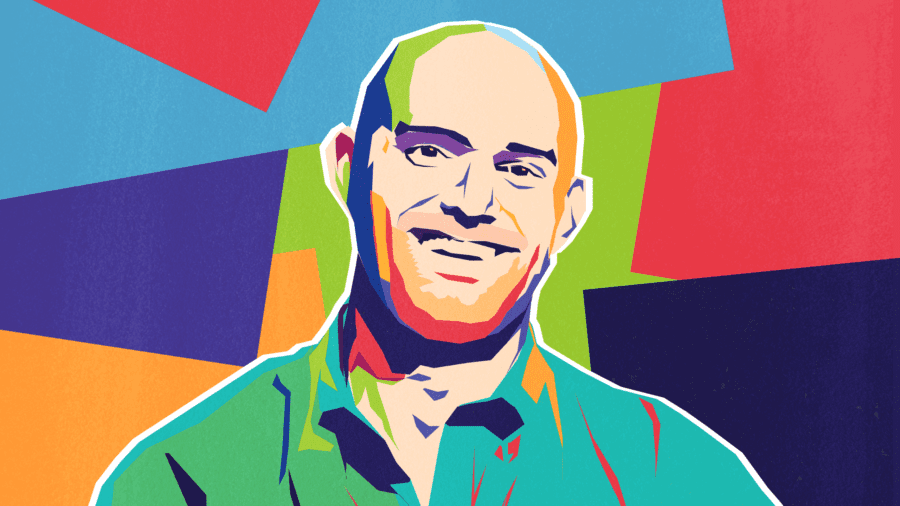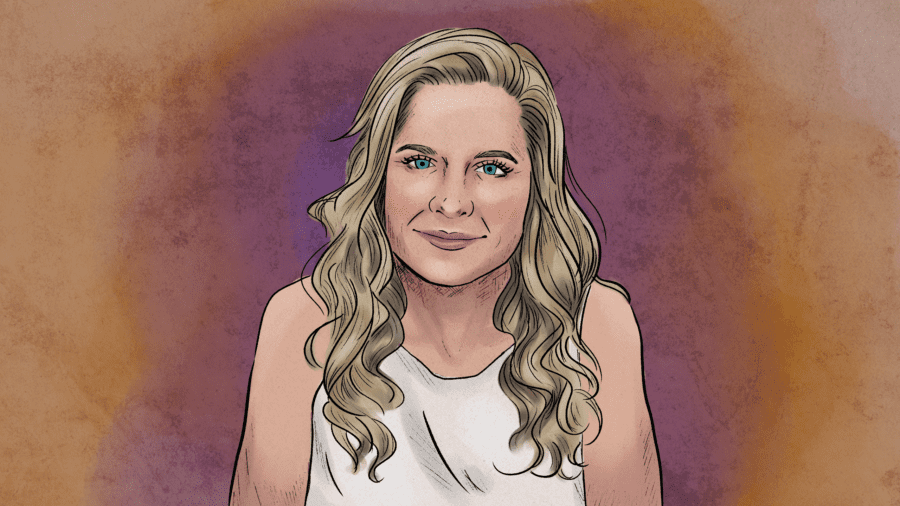
11 Science-Backed Ways to Improve Your Memory & Mental Capacity
Improving your memory and mental capacity can improve practically every facet of your life. You can learn more in less time, and you can use your learning to enhance your professional and personal development!
Fortunately, there are many fun, straightforward and science-backed steps to improve your mental capacity and memory. Over the years, The School of Greatness podcast has hosted many brilliant guests who specialize in cognitive optimization, and they provided excellent insights for enhancing your memory and mental capacity.
Tip #1: Jim Kwik’s MOM System
Memory and executive coach Jim Kwik specializes in equipping people with tools to upgrade their brains and learn faster. He utilizes a highly effective system for improving memory called the “MOM” system, an acronym for Motivation, Observation, and Mechanics.
The first step to enhancing your ability to learn and retain information is to feel motivated to learn in the first place. If you feel the drive to learn something, you’ll increase the likelihood of remembering the information. For example, if you need to motivate yourself to remember a person’s name, you can think about the consequences of failing to remember it, such as how it can affect your future professional or personal relationship with them.
Observation involves our ability to pay attention to the information we’re trying to retain, and Jim describes it as our ability to see something rather than just look at it. For example, if someone teaches you information, it’s about listening closely to what they have to say rather than just half-heartedly hearing their voice while thinking of something else.
The final “M” involves the practical mechanics you can use to optimize your learning ability. You can use different tools and habits to enhance your retention, and we’ll discuss these mechanics throughout the rest of this article.
Tip #2: Believe in Yourself
Believing in your ability to learn and retain information is critical for your mental enhancement. Your beliefs about yourself shape your ability to develop habits, accomplish goals, and enhance your mental capacity.
If you don’t believe in your ability to learn and enhance your memory, you’re far less likely to grow mentally. A huge part of reaching success and striving for greatness in the different areas of your life is overcoming doubts about yourself, including your learning. One expression that Jim Kwik preaches is “Killing ANTS.”
ANTS refers to the Automatic Negative Thoughts that we may have about ourselves. Jim expressed a powerful observation about the importance of our self-talk and thoughts about ourselves. He stated that our minds are like computers, and self-talk and beliefs are how we program the computer. You’re far less likely to remember or accomplish something if you doubt yourself.
One of our previous guests, Evy Poumpouras, a journalist and former U.S. Secret Service Special Agent, noted that indecisiveness is a common trait for people who lack confidence. We need to enhance our confidence by trusting our ability to make decisions. When you gain confidence in yourself and your brain, you’ll be able to learn and retain more.
Tip #3: Training Your Brain Through Discomfort
Another effective way to overcome doubts and enhance your brain is by stepping out of your comfort zone. Author and coach Tony Robbins swears by a morning routine that forces him to embrace physical discomfort.
Every morning, he immerses himself in freezing cold water in order to overcome the anxiety associated with submerging in cold temperatures. Your ability to handle physical discomfort trains your brain to take on other challenging tasks throughout the day, such as focusing and learning new information.
According to Healthline, there are many other benefits of bathing in cold water that enhance your cognition. Some studies indicate that taking cold showers can increase your endorphins while decreasing depression. Depression is incredibly detrimental to learning and retaining new information, so taking steps to improve mental health impacts your mental capacity. If you struggle with depression, please consult with a mental health specialist.
Additionally, if you choose to shower or immerse yourself in cold temperatures, prioritize your safety and talk to your doctor first.
Tip #4: Positive Thinking
Positive thinking plays an essential role in improving our cognition. According to one of our previous guests, Dr. Andrew Huberman, a neuroscientist and tenured professor in the Department of Neurobiology at Stanford University of Medicine, positive thinking can improve our internal processes as a whole.
We can shift our mindsets to enhance our dopamine and serotonin systems. Our dopamine system motivates us to learn and retain information, and the serotonin system impacts our sense of internal well-being, which is also critical for our ability to enhance ourselves mentally.
Tip #5: Practice and Repetition
The key to improving different areas of your life is practice and repetition. Accomplishing anything significant requires hard work and determination, and that includes enhancing memory and cognition. We can improve our ability to remember things through regular practice.
If you’re trying to get better at remembering names, you can privately quiz yourself and practice remembering. Jim Kwik provided an excellent exercise in which you create fake names for people you see in public, and you can practice remembering those fake names. Tony Robbins offered an invaluable insight about how the more you practice in private, the better results you’ll see in public. When you practice your ability to remember names in private, you’ll enhance your ability to remember names when meeting new people.
Join In 200 Million+ On The Journey to Greatness
Tip #6: Overcoming Distractions
Our ability to focus and overcome daily distractions is critical for our learning and mental capacity. Author and psychology professor Dr. Amishi Jha noted that you can avoid distractions by paying close attention to your ability to focus. You need to notice when your brain becomes distracted and when you have difficulty focusing.
When you notice when your brain becomes distracted, you can implement strategies for avoiding interferences. For example, if you notice that you frequently become distracted by browsing time-wasting websites, you can install a browser extension to block certain websites.
Additionally, you can note how you procrastinate. Author Rory Vaden observed that there are three different types of procrastination that keep us from achieving our goals and learning new things. These include classic procrastination, creative avoidance, and priority dilution.
Classic procrastination deals with putting off a task that we know we should do. Creative avoidance occurs when we trick ourselves into believing that we need to do something else before accomplishing the task at hand.
For example, you may trick yourself into believing that you need to clean something before focusing on the information you need to learn. Priority dilution is similar to creative avoidance, but it deals with accomplishing tasks that may seem more urgent. Something may come up, and you convince yourself that you need to address it immediately, which causes you to put off more important tasks. Being aware of these different forms of procrastination can help you enhance your ability to stay focused on your learning.
Tip #7: Meditation
You can also enhance your ability to focus in order to learn and retain new information by practicing mindful meditation. According to Dr. Amishi Jha, you can significantly improve your ability to focus and overcome distractions by implementing a regular meditation practice.
Practicing meditation also reduces stress, which impacts our ability to retain information. According to Harvard Health Publishing, meditation and other stress reduction practices reduce age-related cognitive decline.
Tip #8: Develop Healthier Habits
In addition to meditation, you can incorporate other positive habits into your routine to enhance your memory and mental capacity. Harvard Health Publishing noted that your diet plays a critical role in your overall cognition.
Diets that are good for your heart are also optimal for your brain. The MIND diet, which stands for Mediterranean diet Intervention for Neurodegenerative Delay, is highly effective for the heart and brain. The diet mainly promotes nuts, berries, fish, and chicken while staying away from high sugar desserts, cheeses, butter, and red meats.
Physical activity is another great habit you can incorporate into your routine to improve cognitive function. Atomic Habits author James Clear listed exercise as a non-negotiable habit that can improve your life, and Harvard Health Publishing noted that cardio and strength exercises enhance brain cell and neurotransmitter growth.
Tip #9: Visualizing to Enhance Memory
Visualization is a critical tool you can use to remember information. Have you ever noticed that it’s usually easier to remember a person’s face than their name? This is because many people are visual learners. Because of this, you can improve your ability to remember something by creating a visual that triggers your memory.
Jim Kwik offered a great visual-based tool for remembering names. Rather than trying to remember the name itself, attach a visual to the name. For example, when Jim meets a person named Mary, he imagines that person holding a lamb, referencing the nursery rhyme “Mary Had a Little Lamb.” Jim also noted that when you attach a visual to the information you’re trying to remember, you tap into the creative side of your brain, which frequently makes it easier to retain information.
Tip #10: Keep Your Brain Stimulated and Learn Something New
You can improve your memory and mental capacity by continuing to train your brain throughout your life. You can regularly stimulate your brain by doing fun games and activities such as Sudoku, crossword puzzles, and jigsaw puzzles. You can also learn new skills to stimulate your brain such as learning a new language or instrument. Harvard Health Publishing stated that other mentally-stimulating activities include board games, art classes, cooking classes, and traveling, but there are many other activities you can take on to advance your brain development.
Tip #11: Allow Yourself to Socialize
It’s no secret that isolation isn’t good for your mental state. Extended periods spent on your own can have adverse side effects on both your self-image and your memory. To stave off memory issues, consider growing your social network.
Studies done by Ohio State University found the size of social networks affects how animals interact and explore their environment. In this study, groups of mice were given the same amount of interactive opportunities, but they were divided into different-sized groups. Those that were in the larger group showed more aptitude for exploring their environment and discovering new things.
When you scale that idea up to the human level, you find that the same rules usually apply. A supportive social group allows you to explore new things and expand your mental capacity. In turn, your memory benefits from the experiences.
Don’t be afraid to join a local club that shares similar interests, explore new things with your partner, or go on a travel adventure with a tourism group — your brain will thank you for it.
Learn More Memory Improvement Tips
There are many lifestyle changes and science-backed activities you can perform to enhance your memory and mental capacity. If you’re not sure where to begin, we recommend you check out some of our previous interviews with high performers and brain specialists. Check out our interview with Tim Ferriss, Jim Kwik, Dr. Amishi Jha, and Dr. Andrew Huberman. Additionally, we highly recommend reading books that can help you improve your habits, mindset, and cognition, including Jim Kwik’s Limitless, James Clear’s Atomic Habits, and Rory Vaden’s Procrastinate on Purpose.
Taking on new activities and habits to improve your mental functions can seem daunting at first, but effort and determination are critical on our journeys to greatness. Today, we challenge you to take a step toward developing one of these practices or to engage in a mentally stimulating activity. You may be surprised how much it benefits your memory, focus, and cognition.
Greatness Authors
Greatness Authors is a collection of writers, thinkers, curiosity experts, and students of the world who are committed to bringing you the most up-to-date, impactful, and inspiring information surrounding Greatness topics.

Redefining Poetry: How Instagram Sensation Rupi Kaur Showed That Poetry Is for Everyone

The 7 Best Vitamins to Naturally Promote Better, Uninterrupted Sleep According to Shawn Stevenson

The Science of Forming Healthy Habits & Letting Go of Bad Ones, According to Author James Clear

9 Signs You Have Imposter Syndrome at Work and How to Overcome Performance Insecurity

Olympian Yusra Mardini’s Incredible Story of Resilience, Rescue, and Refugee Rights










